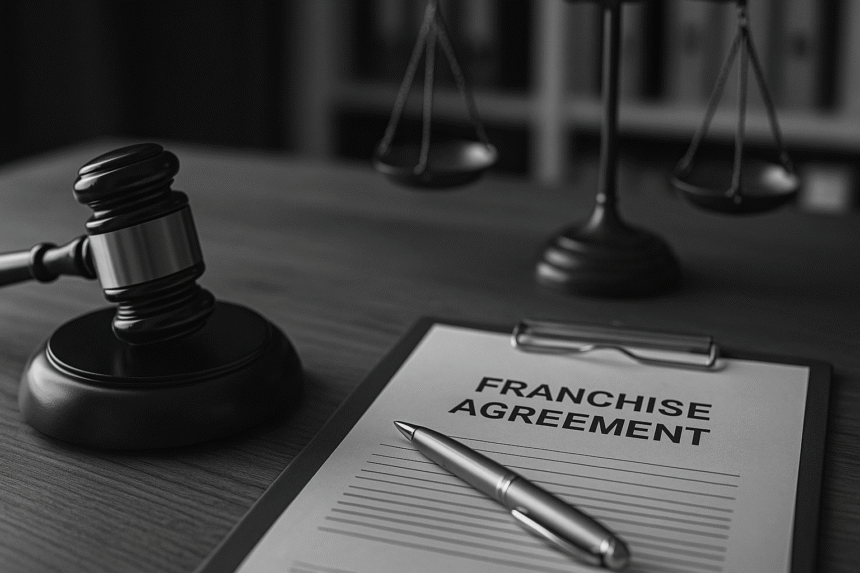Why Proper Franchise Disclosure Saves Franchisors from Future Legal Battles
In the world of franchising, excitement often overshadows caution. Many franchisors are eager to promote their success story, onboard new franchisees, and scale quickly. But behind every sustainable and legally sound franchise is one foundational truth: franchise disclosure. Complete, honest, and appropriately timed franchise disclosure is not just a legal requirement — it’s a strategic shield that protects your brand, reputation, and business relationships.
On the flip side, behind nearly every major franchise lawsuit is a disclosure issue — something ignored, rushed, or buried in legal jargon. Whether it’s misrepresenting financial performance, skipping key risk factors, or providing incomplete operational details, poor franchise disclosure is a ticking time bomb.
This article is written for franchisors, franchise consultants, and legal professionals navigating the complex world of franchising. If you want long-term sustainability, strong franchisee relationships, and legal peace of mind, understanding and mastering franchise disclosure is not optional — it is essential.
What Most People Get Wrong
There is a common and dangerous belief in the franchising world: “The Franchise Disclosure Document (FDD) is just paperwork.” Many franchisors — especially those launching their first brand — treat franchise disclosure like a check-the-box compliance task rather than a strategic tool.
This mindset often results in:
-
Minimizing or omitting financial disclosures
-
Hiding past or pending litigation
-
Glossing over real operational challenges
-
Copying generic FDD templates without proper tailoring
The problem? Prospective franchisees rely heavily on your franchise disclosure to make major financial decisions. If the FDD is incomplete, misleading, or overly optimistic, it doesn’t just risk a poor business relationship — it opens the door to fraud claims, lawsuits, and penalties from regulators.
Franchise disclosure is not optional paperwork. It’s your legal foundation and your credibility statement. Cutting corners here can cost far more than the effort it takes to get it right.
My Perspective: Disclosure Is Protection, Not Punishment
Let me be clear: Proper disclosure isn’t about handing over your secrets. It’s about creating informed, legally protected relationships from day one.
Here’s why it matters:
-
It builds trust: A transparent FDD sets a professional tone. Franchisees feel respected, not sold to.
-
It filters out misaligned partners: If someone is uncomfortable with your royalty terms, operational support, or brand expectations, they’ll walk away early, before it costs you both time and money.
-
It defuses future disputes: When disputes happen (and they will), courts look at what was disclosed. If your FDD and franchise agreement are clear, you’re protected.
-
It reduces regulatory exposure: In the U.S., state regulators and the Federal Trade Commission (FTC) enforce FDD standards. Failing to disclose material facts—like a past bankruptcy or pending lawsuit—can lead to investigations or fines.
-
It protects your reputation: Bad franchisee experiences, often caused by unmet expectations, damage your brand. Proper disclosure helps align expectations from the start.
A Real-Life Example
A few years ago, I worked with a food and beverage franchisor expanding from Egypt into the UAE. The business model was strong and the branding was well-received. However, their franchise disclosure was incomplete. Their FDD left out critical details: the actual cost of equipment, realistic average unit profitability, and the franchisor’s limited supply chain support.
Within six months, two franchisees launched operations. Both quickly ran into unexpected expenses and inventory delays. One filed a legal complaint, citing material misrepresentation due to what wasn’t disclosed in the franchise disclosure document.
Here’s what we learned:
-
The franchisor believed that common sense and verbal conversations would fill the gaps.
-
The court, however, evaluated only what was included in the formal franchise disclosure.
-
A revised FDD — with real numbers, updated support terms, and transparent disclosure of past challenges — helped prevent further disputes.
In the end, clear franchise disclosure didn’t just protect the franchisor legally; it also enhanced trust and strengthened the brand’s future expansion by setting accurate, realistic expectations from day one.
Counterpoint: “Too Much Disclosure Will Scare Franchisees Away”
It is a fair concern. Some advisors and franchisors worry that being too honest in their franchise disclosure — about risks, financial variability, or operational limitations — might scare off potential franchisees.
But here’s the truth: it’s far better to lose the wrong prospect early than to battle them in court later. A transparent franchise disclosure process doesn’t weaken your offer — it strengthens your legal position and attracts the right kind of partners.
Franchisees who are serious, committed, and realistic will appreciate your honesty. Those chasing a quick win or ignoring the fine print are more likely to fail — and blame you when they do.
Think of franchise disclosure as business insurance. You hope it’s never tested in litigation. But when problems arise, having a complete and honest franchise disclosure document in place can protect your brand, your rights, and your bottom line.
Explore more on Franchise Agreement here
Closing & Reader Takeaway
Franchising without proper franchise disclosure is like entering a business marriage without a prenup — risky, emotional, and incredibly expensive to fix later. Many franchisors focus on growth, branding, and onboarding new partners, but neglecting accurate and complete franchise disclosure can leave you legally vulnerable and reputationally exposed.
Ask yourself:
-
Would a third-party regulator — or a judge — say your franchise disclosure is clear, fair, and fully compliant?
-
Could a disappointed franchisee use vague language or missing details in your disclosure as grounds for legal action?
-
Have you disclosed the full picture — not just what’s legally required, but what truly matters to a franchisee’s decision-making?
If your answer to any of these is “I’m not sure,” that uncertainty is a liability. Strengthening your franchise disclosure practices now is far more cost-effective than defending them in court later. A transparent, well-drafted franchise disclosure document isn’t just legal protection — it’s a trust-building tool that sets your entire franchise system up for sustainable success.
Next Step: Book a Franchise Agreement Review Call



Leave a Reply